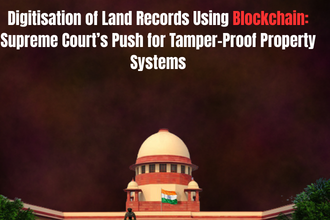In a significant development, the Supreme Court of India has reiterated the principle that anticipatory bail should be granted sparingly in economic offences, emphasizing the serious threat such crimes pose to the nation’s financial health. The verdict comes in the wake of the Adarsh Group of Companies scam, where anticipatory bail was granted by the Punjab and Haryana High Court to several accused, despite their repeated failure to comply with court summons.
Background: The Adarsh Group Scam
The Adarsh Group of Companies, helmed by businessman Mukesh Modi, came under scrutiny following a probe by the Serious Fraud Investigation Office (SFIO), which examined 125 affiliated companies. The investigation revealed that the Adarsh Credit Co-operative Society Ltd (ACCSL), a multi-state credit cooperative society, had disbursed loans worth ₹1,700 crores to its own group entities, blatantly violating financial norms and regulations.
On the basis of SFIO’s findings, a criminal complaint was filed before the Special Court in Gurugram against 181 individuals, including key directors and functionaries. When these accused failed to appear before the Special Court despite issuance of bailable and non-bailable warrants (NBWs), proclamation proceedings under Section 82 of the Code of Criminal Procedure (CrPC) were initiated to declare them as absconders.
After the Special Court rejected their anticipatory bail pleas, several accused approached the Punjab and Haryana High Court and obtained relief between March and April 2023. This led to the SFIO moving the Supreme Court, which ultimately set aside the High Court’s orders.
Economic Offences Are ‘A Class Apart’: Supreme Court
A Bench of Justices Bela M Trivedi and Prasanna B Varale delivered the ruling on April 9, 2025, stressing that economic offences must be treated as a distinct category due to their far-reaching impact on public funds and the country’s economy.
“It is no more res integra that economic offences constitute a class apart, as they have deep rooted conspiracies involving huge loss of public funds. Such offences need to be viewed seriously,” the Bench stated in its judgment.
Anticipatory Bail: Not a Right in Grave Economic Cases
The Court emphasized that anticipatory bail is not a right, particularly in serious financial crimes involving evasion of law. The Bench noted that the privilege of anticipatory bail should not be extended to individuals who actively avoid the judicial process or obstruct legal proceedings.
“The law aids only the abiding and certainly not its resistants. When a person is evading the process of law after cognisance is taken and warrants are issued, the privilege of anticipatory bail should not be extended to them,” the Court held.
Twin Conditions Under Companies Act for Bail Must Be Satisfied
Importantly, the Court reaffirmed the mandatory nature of the “twin conditions” under Section 212(6) of the Companies Act, which governs the grant of bail for offences under Section 447 (related to fraud):
The public prosecutor must be given an opportunity to oppose bail.
The court must be satisfied that there are reasonable grounds for believing the accused is not guilty and is not likely to commit any offence while on bail.
These twin conditions, the Court added, apply even to anticipatory bail applications. The ruling drew support from the precedent laid down in Vijay Madanlal Choudhary v. Union of India, where similar conditions under the Prevention of Money Laundering Act (PMLA) were upheld.
High Court Orders Termed ‘Perverse and Untenable’
The Supreme Court strongly criticized the Punjab and Haryana High Court’s decision to grant anticipatory bail to the accused, despite multiple warrants and proclamation proceedings being issued by the Special Court. According to the Bench, the High Court failed to consider the lower court’s detailed efforts to secure the presence of the accused.
“Such orders being in the teeth of the settled legal position… would fall into the category of perverse orders and therefore untenable at law,” the judgment read.
The Court underlined that judicial time and process must be respected at every level of the judiciary. “The judicial time of every court, even of Magistrate’s Court, is as precious and valuable as that of the High Courts and the Supreme Court,” the Bench noted.
Evasion of Law is Obstruction of Justice
The judgment makes it clear that disobeying court orders and attempting to delay proceedings amounts to interference with the administration of justice. “Disobeying the orders of the Court and trying to delay the proceedings by hook or crook certainly amounts to interference with the administration of justice,” the Court said.
The Bench concluded that in such grave economic offences, anticipatory bail is not the norm and should be granted only under exceptional circumstances, and only if the statutory conditions are fully met.
Directions to the Accused
The Supreme Court allowed SFIO’s appeals and directed the accused to surrender before the Special Court within one week. Their regular bail applications are to be considered as per law. However, the Court dismissed SFIO’s plea in respect of three individuals — Akshat Singh, Naveen Kumar, and Mahesh Dutt Sharma — as they had secured anticipatory bail from the Special Court itself.
Legal Representation
The SFIO was represented by Advocates Padmesh Mishra, Hari Kishan, Sudarshan Lamba, and Amrish Kumar. The accused were represented by a battery of senior and experienced lawyers, including:
Senior Advocate Sidharth Luthra – Representing Akshat Singh
Senior Advocate Siddhartha Dave, with Advocate Aditya Samaddar
Advocates Abhishek Singh, Amit Bhalla, Aniruddh Joshi, Umang Shankar, Sumit Kumar, Gautam Awasthi, Arjun Sharma, Upendra Pratap Singh, Rohan Ganpathy, Jawaid Hussain Khan, V. Elanchezhiyan, Rajat Mittal, Sadapurna Mukherjee, and Davesh Bhatia
Conclusion:
A Message on Compliance and Accountability
This landmark judgment is a stern reminder that economic offences strike at the very root of public trust and financial stability. The ruling underscores the need for strict judicial scrutiny, especially when individuals attempt to bypass legal accountability. It sets a clear precedent that anticipatory bail should not be used as a shield by absconding offenders and reinforces the sanctity of due process in white-collar crimes.


